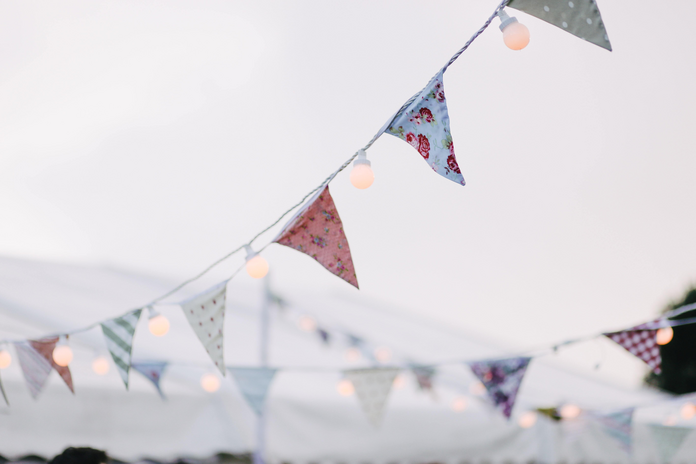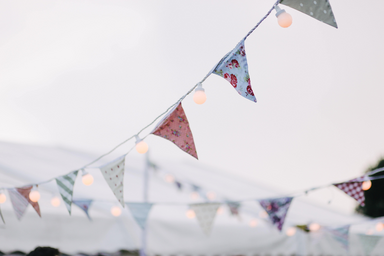We see disposable products as ‘easier’. Using a paper plate means we don’t have to wash any dishes, bottled water supposedly tastes better and is cleaner than tap, it’s cheaper to buy a pack of plastic silverware than invest in a reusable set. We don’t think about the effect disposable products have on our environment or how much reusable things can benefit us. This list gives easy and affordable alternatives to disposable products.
Dryer balls > Dryer sheets
Dryer balls are wool balls that replace disposable sheets. They absorb static just like sheets do only they can be used over and over again. Buying one pack of dryer balls means not having to repurchase boxes of sheets because you never run out! It’s something very small, but even small changes add up over time.
Smart Sheep dryer balls are $16.95 on Amazon.
Detergent > Tide Pods
Tide pods were created to be a ‘convenient’ alternative to laundry detergent. But how much time do they really save? It’s not hard to pour detergent into a cup and yet Tide makes it out to be this great struggle that they can free us from. Not to mention the child-safety issues, some of which have been resolved but still add risk to children (and dumb teens). The environmental problem with Tide pods is the extra concentrated detergent adding more chemicals into water runoff and the polymer that encases the detergent. The polymer is generally thought to be safe but still contains a monomer that ends up in runoff.
The best alternative is to make your own laundry detergent, but let’s be real none of us have time for that. There are detergents made from natural ingredients available in stores; like Meyer’s and Seventh Generation that would be better for the planet, and your clothes, than Tide pods.
For more information on Tide pods check out this post by the Green Stars Project.
Brita Filter > Plastic Water Bottles
Constantly buying bottles of water is expensive! The bottles aren’t easily recycled and even when they can be, the process of breaking them down still produces hazardous waste that can’t be disposed of. Reusable bottles are a great alternative but they don’t make tap water taste any better. If you want to stay hydrated while saving the planet, invest in a filter. You can get one that attaches directly to your sink or get a pitcher that fits perfectly into a dorm room mini fridge. The water is clean and refreshing and, ultimately, ends up being way cheaper than constantly buying bottled water.
Buy a filter here. Buy a pitcher here (I recommend the five cup option for small fridges)
Silicone straws > Plastic straws
This has been a heavy debate, single-use plastic straws are incredibly damaging to our oceans but reusable metal and glass ones are not an option for people with disabilities who rely on plastic straws. Personally I think silicone is the perfect compromise. It’s soft and can be chewed on but silicone is a material that is long-lasting, convenient and doesn’t contain harmful chemicals that can be ingested. They’re affordable, dishwasher safe and can even be boiled to disinfect them. Because they’re so malleable they can be kept easily in a purse or a keychain holder. This article from The Mighty, written by someone with Cerebral Palsy, does a great job reviewing different types of straw options by ease of use and durability.
Cotton pads > Cotton balls
Cotton pads are reusable pads that do everything a single-use cotton ball can do, but can be washed along with your laundry. They’re great for facial toner, makeup remover or nail polish. They don’t contain bleach or other chemicals and one order of a pack saves you from going to the store every time you need cotton balls. They’re soft and clean skin well (no they don’t just rub old dirt and bacteria on your face). I always found that using a cotton ball twice a day filled up my trash can unexpectedly fast.The reusable pads save me from making so many trips down to the dumpster, and let’s be real, taking out the trash is a chore we all procrastinate. Find your own here.
White vinegar > Chemical cleaning sprays
Distilled white vinegar is one of those things that can be used for everything. When mixed with water and essential oil it can freshen up bad smelling spaces, clean out your coffee maker, scrub bathrooms and kitchens, clear out gunk from drains, replace your fabric softener, remove water spots and fog from car windows, as well as clean glass in general (if using on wood mix with water and baby oil to condition). White vinegar is cheap, has limitless uses and doesn’t contain harsh chemicals that other cleaners use. A bottle of white vinegar will save room under your sink, save money, save the planet and keep you from being exposed to harsh chemicals. It’s so great for broke college kids who need something cheap and effective.
A recipe from Better Homes & Gardens for multi-surface cleaner; Mix 1-cup white vinegar, 2 teaspoons borax or baking soda, 4-cups hot water, 5 drops liquid dish soap, 10 drops tea tree oil, and 10 drops of essential oil (optional). The article includes other tips and uses for white vinegar.
Making our lives easier and keeping the planet healthy go hand in hand. We’ve been taught by marketing that disposable products are easier, harsh chemicals work better, and spending money on these things is worth it. We see the low price tag on disposable products and assume we are saving money, but in reality constant repurchasing is costing us more money than investing in something that will last us a long time. We assume that marketed products like Windex and Tide work better than the cheaper, chemical-free options because ‘you get what you pay for’. The things I’ve listed here are just as easy and convenient, if not more so. Being environmentally conscious isn’t difficult, complicated or expensive; its as easy as keeping one cleaning product under your sink, or carrying reusable straws the way we carry granola bars in our bags. It’s time to stop pretending helping the planet is hard or that doing something small won’t make a difference.


